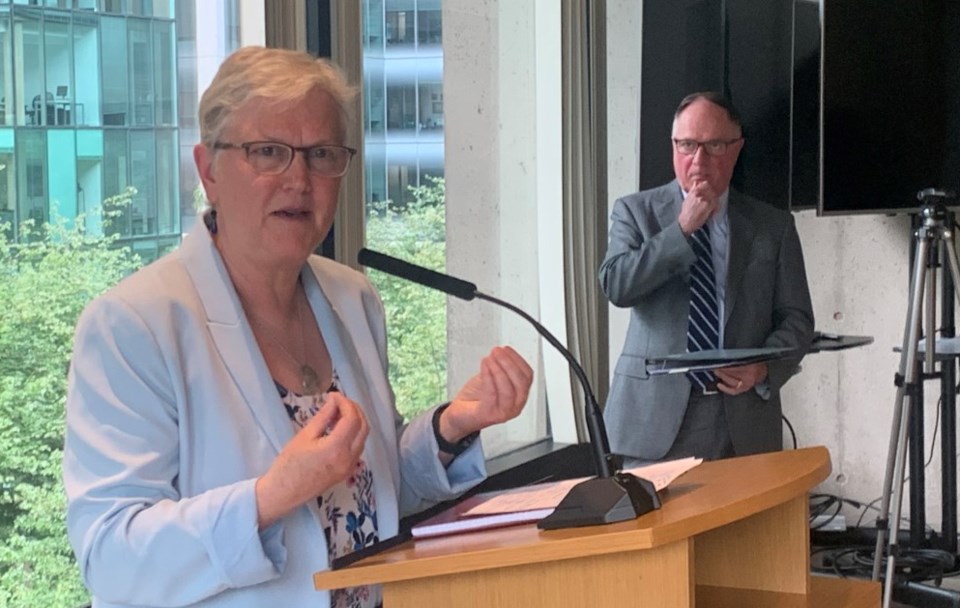When Sahara Davis got stuck in the middle of her parents’ divorce case, she tried to get a lawyer of her own but was denied and found repeatedly she had no voice in the proceedings.
“I was told again and again I would not be represented because I was not an adult,” she said at the June 7 launch of a new initiative to prevent situations like hers.
Her high school grades began to fall and her acceptance to UBC was overturned. She feared being ripped away from her B.C. friends, forced to move to New York with her father.
“I was just drowning under what was going on,” Davis said. “My father used the legal system as a weapon.”
As she spoke, Chief Justice of B.C. Robert Bauman stood behind her, there in his role as emcee of the launch of the Transform the Family Justice System Collaborative.
The initiative is a collaboration between Access to Justice BC, Doctors of BC and the Law Society of BC. Its goal is to bring people together to raise awareness of adverse childhood experiences (ACEs) in the court system and to work together to promote the well-being of patients and clients.
The initiative said brain science tells us that ACEs are a significant public health issue because they can cause toxic stress that impacts the immediate, long-term, and intergenerational mental and physical health of children and youth.
And much of that can stem from family court experiences, speakers said at the unveiling.
ACEs can include childhood traumas such as parental separation, witnessing intimate partner violence, abuse, neglect, having a family member with mental illness or substance abuse issues, or and incarceration of a family member.
And, all such experiences feature in the family justice system, and in many situations, the traditional adversarial court process escalates conflict and exacerbates the impacts of ACEs.
Acting on that science and working cooperatively, initiative members believe they can reduce toxic stress, strengthen support for families, maximize holistic approaches to family well-being, and reduce personal, justice sector, economic and social costs.
Bauman told Glacier Media the initiative is all about mental and physical health, about “lowering the temperature of the litigation.”
He said family law should be about improving families’ lives instead of achieving a result to a dispute.
“That’s the road to improved well-being for families, is resolving all of the questions,” he said, explaining the approach brings all of the various players in the system together to find resolutions.
“It’s family counsellors, it's doctors, it’s lawyers at the beginning of the process, it’s teachers,” Bauman said. “It’s not really revolutionary but the fact is we haven’t really adopted that kind of an approach before.”
He added families were involved in the development of the initiative.
“User-centred,” he said. “That means talking to people who are living the experience. We heard from people we haven’t normally heard from.”
Among those: kids.
“We generally don’t listen to anyone under 18,” Bauman said.
Dr. Jennifer Charlesworth, B.C.’s Representative for Children and Youth, said the system has been ripe for reform, that young people’s voices are essential.
“Deliberations are being made about their lives and their futures without them,” she said, adding young people want to be heard and valued, to have their perspectives respected.
“This is a social issue,” she said, stressing children will continue to be harmed if the adversarial system in family law continues.
B.C. Attorney General David Eby said changing how the justice system operates is no small feat.
“I am greatly encouraged by the strong support across the board for the collaborative’s efforts to transform family justice,” Eby said. “We have to focus on overall family well-being, and that’s why it’s great to see health-system leaders standing with us today. Together, we need to make sure the system works for the people who most need its help.”



